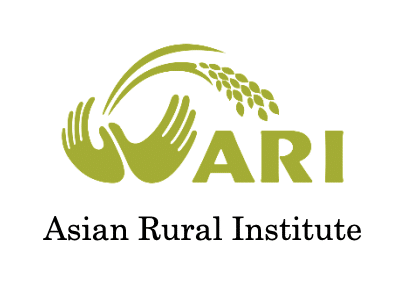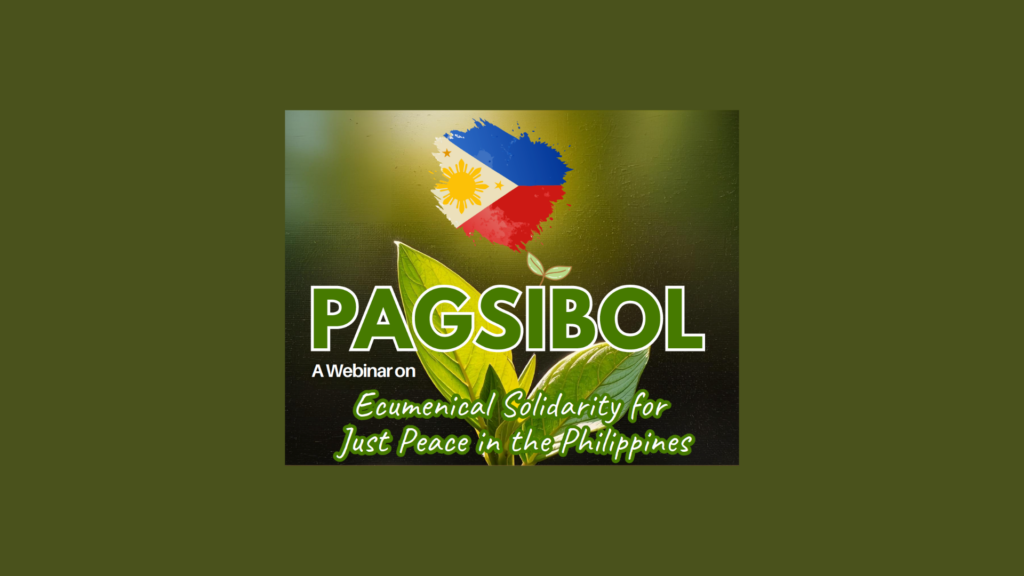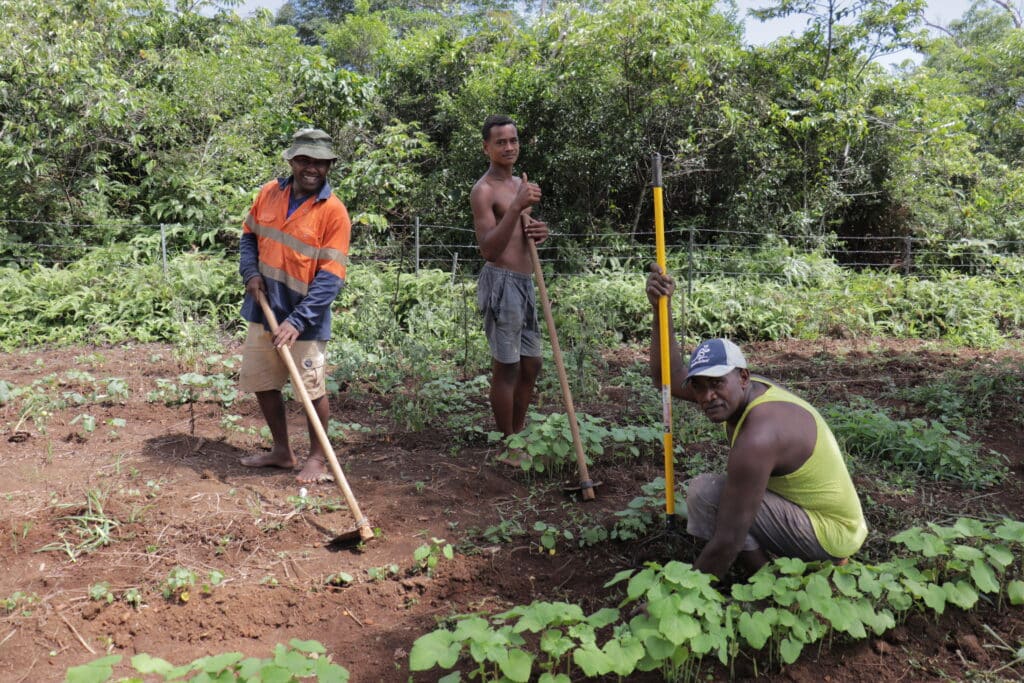Asian Rural Institute (ARI)

Located in Northern Japan, the Asian Rural Institute (ARI) is an international training ground for grassroots rural leaders. Each year, they conduct a nine-month Rural Leaders Training Program on sustainable agriculture, community development, and leadership. Upon completion, program participants return to their home villages and communities to work alongside their people, pass on their learning, and promote development from within. ARI has trained over 1200 rural leaders from 51 Asian, African, and Pacific countries. The program’s heart is the concept of ‘foodlife’ – holding significant value in human life and the food that sustains life. Their motto is “That We May Live Together”
ARI Mission Statement:
The mission of the Asian Rural Institute is to build an environmentally healthy, just and peaceful world, in which each person can live to his or her fullest potential.
This mission is rooted in the love of Jesus Christ.
To carry out this mission, we nurture and train rural leaders for a life of sharing. Leaders, both women and men, who live and work in grassroots rural communities primarily in Asia, Africa and the Pacific, form a community of learning each year together with staff and other residents.
Through community-based learning we study the best ways for rural people to share and enhance resources and abilities for the common good.
We present a challenge to ourselves and to the whole world in our approach to food and life.
What is the Asian Rural Institute?
The Asian Rural Institute (ARI) was founded in 1973 by Rev. Dr. Toshihiro Takami. The program aims to invite and train local grassroots leaders to more effectively serve in their communities as they work for the poor, the hungry, and the marginalized. Each year, from April to December, they bring together about 30 leaders from countries primarily in Asia, Africa, and the Pacific to take part in their Rural Leaders Training Program. The training focuses on sustainable agriculture through integrated organic farming techniques, community building, and leadership. Community-based hands-on learning is emphasized in all areas. Working together, they grow and share their own food. At the heart of the program is ‘Foodlife’ – a term designed to recognize and value the interdependency between life and the food that sustains all life.
Who Takes Part?
ARI recruits grassroots Rural Leaders, both women and men, who are living and working with their people in their rural communities. They seek out local leadership who have demonstrated through their actions their commitment to serve their people and act as conduits for positive change within their own communities.
They place emphasis on reaching the most marginalized, poor, and oppressed peoples, especially women, tribal minorities, and those of low castes, or so-called untouchables. They welcome those of any faith, race, class, or profession as long as they share ARI’s vision and pledge to return home straight away to work together with their people. In the past, they have trained clergy and church leaders, agricultural trainers, community and village leaders, staff of farmers’ cooperatives, NGO personnel, teachers, orphanage staff and many more.
They make a special effort to recruit women and men in equal numbers. It is always the goal of ARI to have a 50/50 ratio of women and men; however, achieving this goal presents many challenges due to conservative and sometimes discriminatory policies of many societies.
What does ARI teach?
1) Sustainable Agriculture
They practice and teach methods of integrated organic farming that incorporate techniques of enriching the soil, cultivating crops, and rearing livestock naturally. In all areas, they promote the use of materials and technology that are available locally in their participants’ communities, reducing dependency on outside inputs and leading toward greater self-sufficiency in food production. As a living model of the self-sufficiency they teach, participants, staff, and volunteers work together to produce most of the food they eat, including rice, wheat, soybeans, and about 60 kinds of vegetables. They also raise livestock, such as chickens, pigs, cows, fish, and ducks, all on their 6 hectares (15 acres) of land.
2) Servant Leadership
A truly effective leader serves, works at the people’s level, and lives a life that is an example and an inspiration, empowering all people to reach their highest potential.
3) Community Development
A healthy community is one in which all members have a voice. ARI’s training facilitates the discovery and utilization of the strengths and talents inherent in all of us, organizing community through full participation in decision-making, contribution of abilities, and access to resources.
Community building at ARI is learned by bringing people together each year from vastly different cultures and life experiences to form a cohesive and cooperative group. Community life in its most basic form can be seen daily at the tables in the dining hall, where everyone comes together three times a day to enjoy meals from food they have all worked to prepare from seed to serving dish.
“Sharing Food is Sharing Life” Rev. Dr. Takami, Founder of ARI
How do we teach?
1) Community-based training
Those who take part in ARI training are leaders in their communities. Each of these leaders brings with them a wealth of knowledge and experience. Therefore, learning is not one-way but multidirectional, with participants and staff serving as teachers and learners. In the context of community, all aspects of life together become part of the learning experience. Throughout the training, they build a multicultural, multi-faith community where everyone participates actively. Teaching, learning, and growth are experienced together as they share their work and exchange ideas and values.
2) ‘Learning by Doing’
A significant part of the training lies in the daily labor required to maintain a self-sufficient farm. Participants manage their own fields, care for livestock, and cook and serve the foods they have raised. These seemingly simple daily activities carried out in the community give many opportunities for practical experience in agriculture, leadership, communication, and cooperation.
3) ‘Foodlife’
Foodlife is a special word coined by ARI founder Rev. Dr. Toshihiro Takami. It represents the inseparable connection between food and life. It is a joyful experience when community members produce food through their own labor and then gather together around the table to share meals prepared from their own harvest. At every meal, they experience the blessings of God and the heart of the community.
All the ARI community participates in “foodlife work,” the daily chores required to maintain a farm. ARI Foodlife Work is about understanding the connection between life and the food that sustains life. This daily farm work allows them to participate closely in the whole cycle of food production and consumption, including sowing seeds, raising both crops and livestock, harvesting & butchering, cooking, eating together as a community, washing the dishes, and using the leftovers for compost or animal feed. By consciously reflecting on this cycle and the role that food plays in their lives, they rediscover the true value of food. They recognize the importance of food produced sustainably, the dignity of labor, and the necessity of food self-sufficiency for people’s self-reliance. Through their combined efforts, they produce most of the food consumed at ARI.
Historical Notes
ARI was established in its present location in 1973 based on the Southeast Asia Christian Rural Leaders Training Course at Tsurukawa Rural Institute in Machida, Tokyo. It started as an international organization that trained leaders who engaged in rural development in developing countries to satisfy the demand for training by Christian churches and groups already participating in rural development in Southeast Asian countries. Japanese, European, and American Christian churches and other groups supported the foundation. Since 1996, ARI has also accepted Japanese participants who intend to serve rural communities in the future – either in Japan or worldwide.
Support this Ministry
To make a gift for this ministry online or by check use the online donation page.
- 100% of your gift will be directed to Asian Rural Institute (ARI)
- You will receive updates on the work in this area as they become available
- Share in the vision of God’s abundant life for all people
Related Content
Webinar – Pagsibol: Ecumenical Solidarity for Just Peace in the Philippines
The National Council of Churches in the Philippines (NCCP), Ecumenical Voice for Human Rights...
Read MoreChuukese Youth Creates Songbook to Uplift Her Community Through Faith and Music
By Kim Free Oriann Soichy, a youth participant in the HELM (Higher Education and Leadership...
Read MoreWorld Council of Churches calls for a “peace-full Pacific”
"Yet this vision unfolds amid intensifying great-power rivalry,” Pillay said. “Too often,...
Read More



